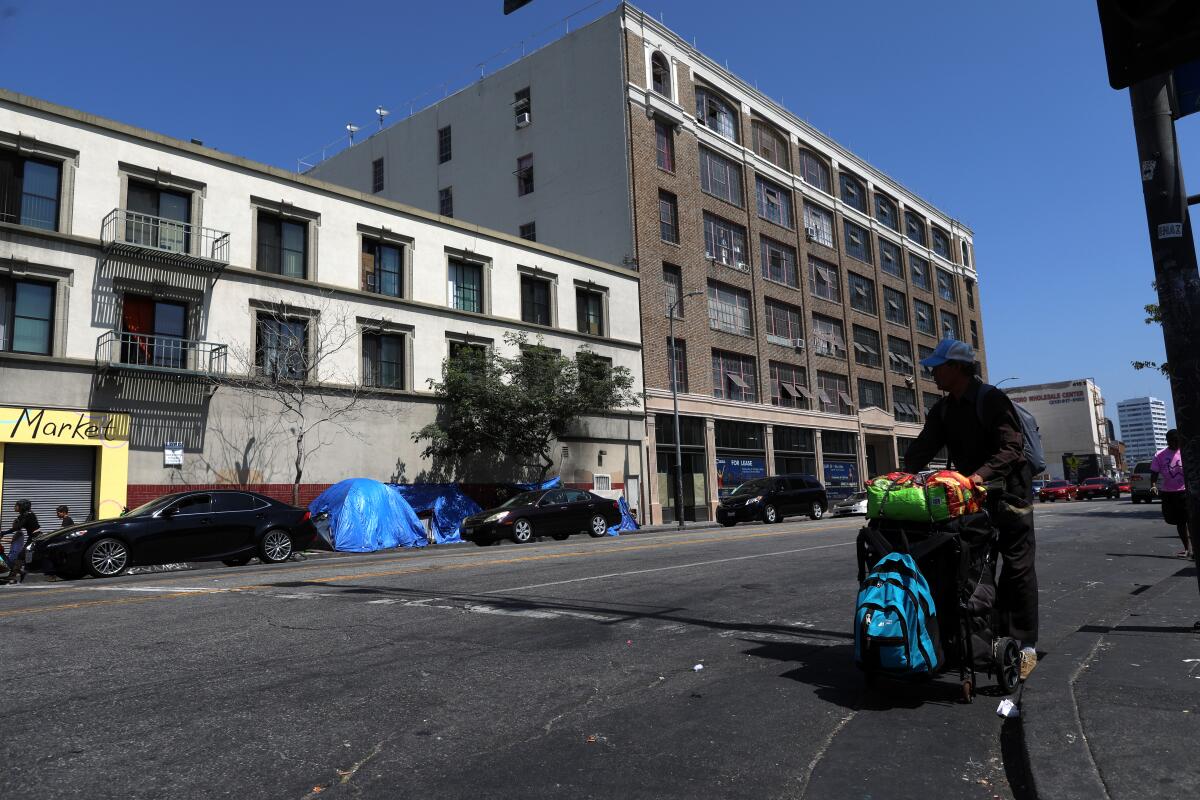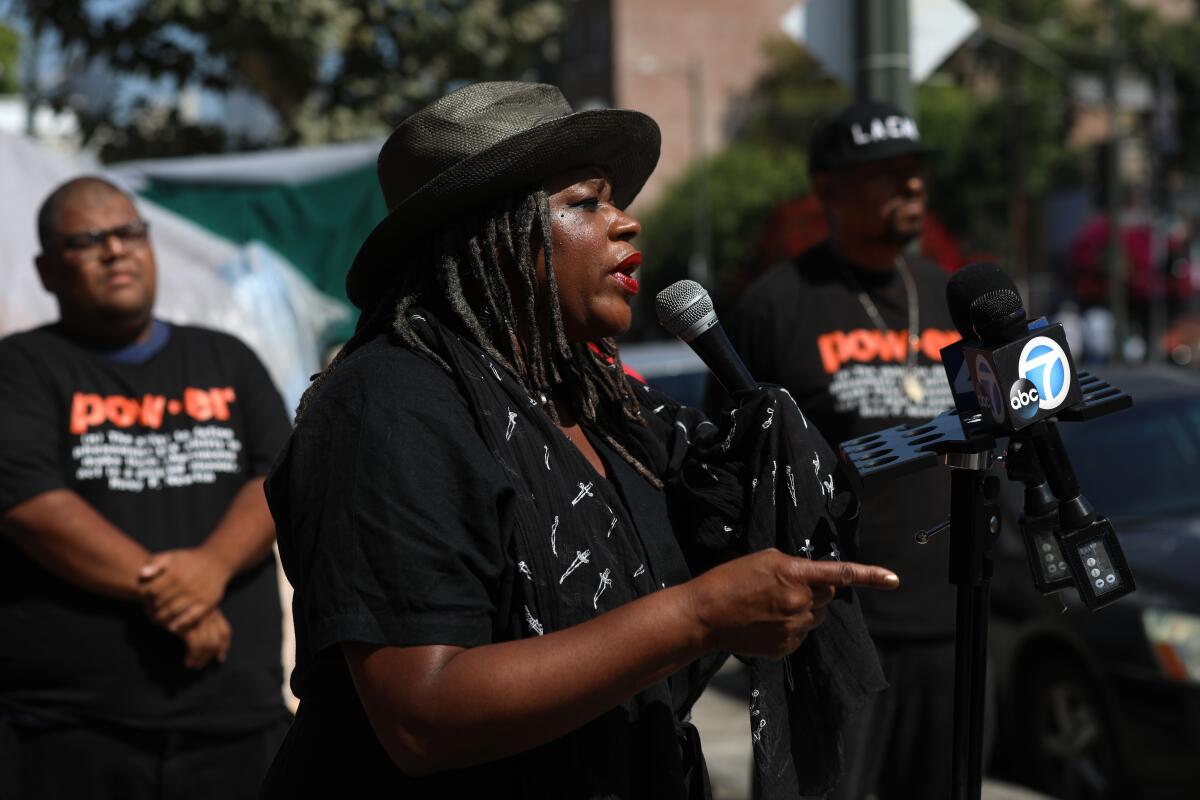Protesters target L.A. over skid row plan: ‘We will not be gentrified’

Alarmed by the threat of gentrification, a coalition of advocates on Tuesday accused Los Angeles of wanting to give the bulk of skid row over to luxury housing developers, ignoring the desperate straits of thousands of people living in tents and shelters in the blighted downtown district.
“When they’re shrinking skid row, they’re forgetting everyone who lives here already,” said Steve Diaz of Los Angeles Community Action Network, a neighborhood anti-poverty group, at a morning news conference. “We will not be gentrified.”
The coalition, which also includes Los Angeles Catholic Worker, Inner City Law Center and the health group United Coalition East, is protesting a city plan that would rezone parts of skid row, plus the adjoining downtown fashion and arts districts, from warehouse and industrial uses to residential.
The plan, which must clear several hurdles before going before the L.A. City Council for approval next year, would limit development in the heart of the 50-block area, which is now lined with tent cities, to housing that’s affordable for people who earn $10,000 to $58,000 a year. But the newly permitted housing in the outer rings of skid row could be market-rate. Under a new “community benefits program,” developers would be allowed to put up bigger buildings if they included units for poor people or added parks, public squares or other amenities.
Protesters said only a third of historic skid row would be protected for homeless people and offer “deeply affordable” housing.
If the city plan is approved and implemented, 100,000 new housing units could be built by 2040, accommodating 176,000 new residents. Downtown currently has 76,000 residents, up from about 18,000 two decades ago, and construction cranes and high-end residential towers are closing in on skid row from all sides.
Protesters on Tuesday said they want all of skid row housing development to be deeply affordable, and a quarter of all new downtown development set aside for low-income people. Their proposal calls for enough new homeless housing to accommodate every person now huddled in doorways and tent cities downtown.

“We’re making it easier — not harder — to build permanent supportive housing in skid row and throughout downtown,” said Yeghig Keshishian, a spokesman for the Los Angeles Department of City Planning. “This plan encourages the development of desperately needed affordable housing in a manner that is sensitive to the needs of the skid row community. This is an approach shared by many nonprofit housing developers, advocates and service providers, who we have worked closely with to develop these proposals.”
Skid row, at last count, had 4,000 homeless residents, including 2,700 living outdoors. Downtown as a whole had nearly 8,000.
The Los Angeles Central Providers Collaborative — which includes several skid row service providers, shelters and the United Way of Greater Los Angeles — also has called for setting aside 25% of housing as affordable in all new downtown developments, plus anti-displacement protections and rent subsidies for as many as 7,000 new low-income units.
Diaz called on City Councilman Jose Huizar, whose district includes skid row and most of downtown, to support the protesters’ demands. A spokeswoman for Huizar did not immediately respond to an email from The Times.
Curt Casey, 55, has been living on skid row sidewalks for two years. Standing across from the Catalina Swimwear Building, which is being renovated for 78 live-work lofts in one of skid row’s early market rate developments, Casey said he opposes the city’s rezoning plan.
“What they’ll do is push everyone even further east,” he said. “They’ve already decided which streets; they just haven’t told us yet. By the time this demographic wakes up, they’ll be east of the L.A. River.”
More to Read
Sign up for Essential California
The most important California stories and recommendations in your inbox every morning.
You may occasionally receive promotional content from the Los Angeles Times.











